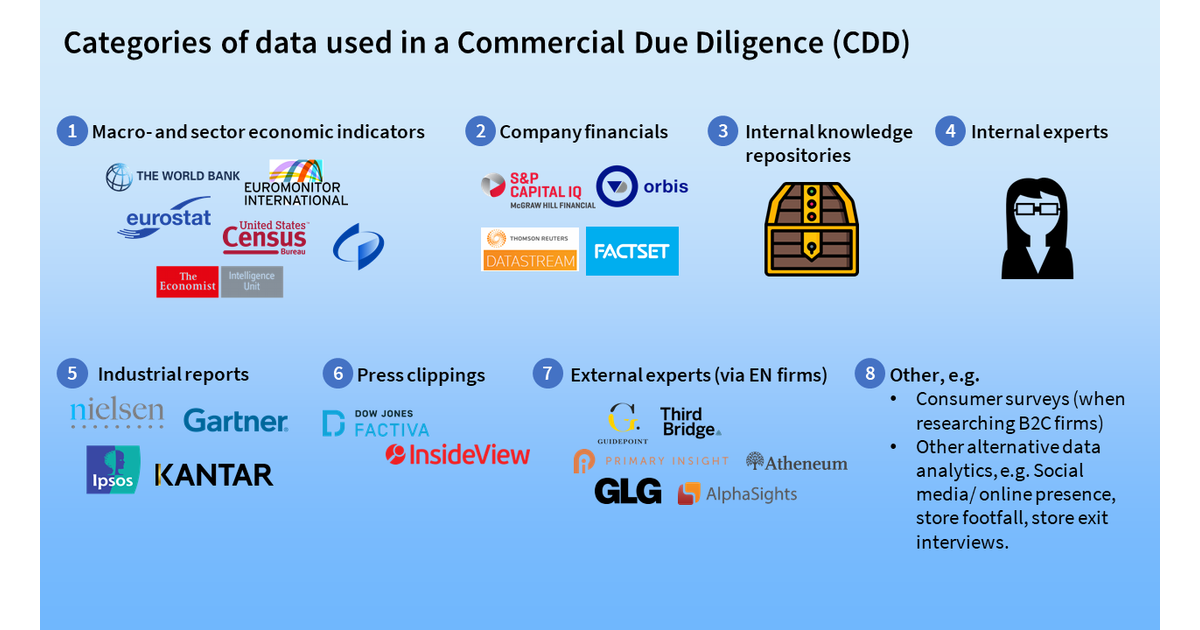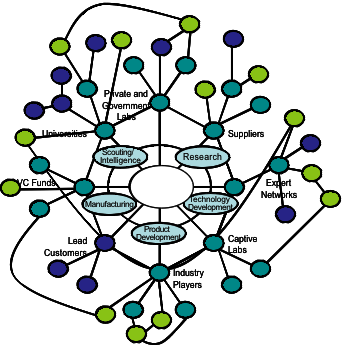How Do Expert Networks Handle Disputes Between Clients And Experts?
How do expert networks handle disputes between clients and experts? In the world of expert networks, where clients rely on the knowledge and expertise of professionals, disputes can occasionally arise. But fear not! Expert networks have established mechanisms to address and resolve these conflicts efficiently and fairly.
When tensions arise between clients and experts, expert networks step in to facilitate resolution. These networks serve as mediators, acting as a neutral party to hear both sides and find a middle ground. By providing a platform for communication and negotiation, expert networks ensure that disputes are handled professionally and amicably.
So, how exactly do expert networks handle these disagreements? Well, they have established processes that involve clear communication, careful assessment of the situation, and fair evaluations. Through open dialogue and a focus on finding mutually acceptable solutions, expert networks ensure that the interests of both clients and experts are considered. Together, they work towards resolving conflicts and preserving the integrity of the network.
In the following sections, we will delve deeper into the specific steps and techniques that expert networks employ to effectively manage and resolve disputes between their valued clients and knowledgeable experts. So, let’s explore the fascinating world of expert networks and discover how they navigate these challenges with finesse.

How Do Expert Networks Handle Disputes Between Clients and Experts?
Expert networks play a crucial role in connecting clients with industry professionals for consultations, research, and insights. However, disputes can arise in these relationships, necessitating an effective dispute resolution process. In this article, we will explore how expert networks handle such disputes, ensuring fair resolutions for both clients and experts. From preventative measures to formal dispute resolution procedures, expert networks employ various strategies to ensure a smooth and satisfactory experience for all parties involved.
Preventative Measures: Building Strong Foundations
Expert networks understand the importance of prevention when it comes to disputes and strive to build strong foundations from the start. This involves thorough vetting processes for both clients and experts, ensuring that they are qualified and reliable. The networks also facilitate clear and transparent communication channels between clients and experts, clarifying expectations, objectives, and deliverables. Additionally, expert networks provide support and guidance to clients and experts throughout the engagement process, helping to mitigate potential conflicts before they arise.
Furthermore, expert networks implement robust compliance and ethical standards that all clients and experts must adhere to. These standards help maintain professionalism, integrity, and confidentiality in all interactions, reducing the likelihood of disputes. By setting clear expectations, nurturing open communication, and upholding ethical standards, expert networks proactively minimize the potential for conflicts between clients and experts.
Informal Dispute Resolution: Mediation and Facilitation
Despite preventative measures, disputes may still occur. In such cases, expert networks facilitate informal dispute resolution processes to resolve conflicts amicably and efficiently. Mediation and facilitation are often employed as effective methods in these scenarios.
Mediation involves the intervention of a neutral third party, the mediator, who assists in facilitating communication and negotiation between the client and expert. The mediator helps identify the underlying issues, facilitates open dialogue, and guides the parties towards mutually agreeable solutions. This collaborative approach allows for more flexible and creative problem-solving, preserving the relationship between the client and expert.
Facilitation, on the other hand, focuses on providing a structured process for the parties to engage in constructive discussions. The expert network may appoint an experienced facilitator who ensures that the dialogue remains respectful, and all concerns are addressed. By providing a safe and controlled environment for communication, facilitation enables the parties to clarify misunderstandings, explore alternatives, and work towards resolution in a productive manner.
Formal Dispute Resolution: Arbitration and Escalation
In cases where informal dispute resolution is not feasible or unsuccessful, expert networks may resort to formal methods such as arbitration or escalation. These processes are designed to provide a legally binding resolution.
Arbitration involves the appointment of an impartial arbitrator or panel who reviews the evidence, listens to both parties, and makes a decision that is legally binding for both the client and expert. This process is more formal compared to mediation or facilitation and follows established rules and procedures.
If the dispute is not resolved through arbitration, the expert network may have an escalation process in place. This allows the dispute to be reviewed by a higher authority within the network or engage external experts or legal professionals to provide an unbiased assessment. The objective of escalation is to offer a fresh perspective and potentially identify alternative resolutions that were not considered during mediation or arbitration.
Continuous Improvement: Learning from Disputes
Expert networks recognize that disputes can provide valuable lessons for improvement. They diligently analyze the root causes of disputes and use the insights gained to refine their processes, update policies, and enhance the overall experience for future clients and experts. By learning from each dispute and implementing necessary changes, expert networks strive to minimize the occurrence of similar conflicts in the future.
Furthermore, expert networks also seek feedback from clients and experts to capture their experiences and suggestions for improvement. This feedback loop allows for ongoing adjustments, ensuring that the dispute resolution mechanisms are effective, fair, and responsive to the needs of all parties involved.
Collaboration and Support: Moving Forward Together
Ultimately, the goal of expert networks in handling disputes between clients and experts is to foster a collaborative and supportive environment. By implementing preventative measures, employing informal and formal dispute resolution procedures, and continuously improving their processes, expert networks aim to ensure that both clients and experts feel heard, valued, and satisfied with the resolution reached. This collaborative approach not only resolves individual disputes but also strengthens the overall credibility and trust within the expert network community.
As the demand for expertise and consultation continues to grow, expert networks play a crucial role in bridging the gap between clients and experts. By effectively handling disputes, these networks enhance the overall experience for all participants and contribute to the advancement of knowledge and industry insights.
The Importance of Effective Dispute Resolution in Expert Networks
Disputes are an inevitable part of any business or professional relationship, including those within expert networks. The presence of an effective and fair dispute resolution process is vital in maintaining the trust and integrity of these networks. In this section, we will explore the importance of effective dispute resolution in expert networks and its impact on the clients, experts, and the overall network ecosystem.
Preservation of Relationships: Retaining Trust
Disputes can strain the relationships between clients and experts, potentially leading to reputational damage for both parties. An effective dispute resolution process helps preserve these relationships by providing a framework for open communication, respectful negotiations, and fair resolutions. When disputes are resolved amicably and with the satisfaction of both parties, trust is maintained, and the foundation for future collaborations remains strong. By prioritizing relationship preservation, expert networks ensure the long-term success and sustainability of their platform.
Ensuring Fairness and Equity
Fairness and equity are fundamental principles in any dispute resolution process. An effective mechanism ensures that both clients and experts have an equal opportunity to present their cases, share their perspectives, and advocate for their interests. By upholding these principles, expert networks create an environment that promotes justice, transparency, and trust. This, in turn, attracts high-quality experts and clients to the network, contributing to its reputation and credibility.
Minimal Disruption and Enhanced Experience
Disputes can lead to significant disruptions in ongoing projects or consultations within expert networks. By having a well-defined and efficient dispute resolution process, these disruptions can be minimized or even avoided. Timely resolution ensures that clients receive the expert insights they need without unnecessary delays, while experts can continue to contribute their knowledge to the best of their abilities. Moreover, an enhanced dispute resolution experience can foster a sense of satisfaction, reinforcing the positive reputation of the expert network among both clients and experts.
Transparency and Communication: Keys to Resolving Disputes in Expert Networks
Transparent communication is the foundation for effective dispute resolution in expert networks. Clear information, open dialogue, and respectful engagement between clients and experts are key factors in reaching mutually agreeable solutions. In this section, we will delve into the importance of transparency and communication when it comes to resolving disputes within expert networks.
Clear Expectations and Objectives
From the onset of any engagement, expert networks must ensure that the expectations and objectives of both the client and expert are clearly articulated and understood. This includes clarifying project timelines, deliverables, scope of work, and any potential risks or limitations. When expectations are clear from the beginning, it sets a solid foundation for the relationship and minimizes the likelihood of disputes arising from misunderstandings or unmet expectations.
Key Takeaways: How do expert networks handle disputes between clients and experts?
- Expert networks have mediation processes in place to resolve disputes between clients and experts.
- Third-party experts may be called upon to provide objective opinions and advice.
- Transparency and clear communication are key to resolving disputes effectively.
- Expert networks may have specific guidelines and protocols for handling disputes.
- In some cases, expert networks may offer alternative solutions or referrals to other experts.
Frequently Asked Questions
Welcome to our FAQ section on handling disputes between clients and experts in expert networks! Below, we have answered some of the most common questions about how these networks handle such issues.
1. How are disputes between clients and experts resolved in expert networks?
When a dispute arises between a client and an expert in an expert network, there are established protocols to handle the situation. In most cases, the network will appoint a mediator or arbitrator to help facilitate a resolution. The mediator’s role is to listen to both parties, understand their concerns, and work towards finding a mutually agreeable solution.
Expert networks prioritize maintaining a positive and professional relationship between clients and experts, as both parties are key to the network’s success. Therefore, the mediator will strive to find a resolution that satisfies both parties’ interests while also considering the overall health of the network.
2. What steps are taken to prevent disputes between clients and experts in expert networks?
Expert networks are proactive in preventing disputes between clients and experts through various measures. These networks have robust screening processes to ensure that experts possess the necessary qualifications and expertise. They also provide clear guidelines and expectations to both parties regarding their roles, responsibilities, and deliverables.
Furthermore, expert networks encourage effective communication and collaboration between clients and experts. Regular check-ins, feedback sessions, and open lines of communication help identify and resolve any potential conflicts before they escalate into disputes. By fostering a transparent and cooperative environment, expert networks lay the foundation for a positive and conflict-free working relationship.
3. What happens if an expert fails to fulfill their obligations in an expert network?
In the event that an expert fails to fulfill their obligations in an expert network, the network will assess the situation on a case-by-case basis. They may offer the expert guidance, support, or additional resources to help them fulfill their commitments. In some cases, a replacement expert may be assigned to ensure that the project or assignment progresses smoothly.
If the expert continuously fails to meet their obligations or engages in behavior that is detrimental to the network or its clients, the network may take more serious measures. This can include terminating the expert’s membership or contract, suspending their access to the network’s platform, or imposing other appropriate sanctions as outlined in their terms and conditions.
4. Can clients request a change of expert if they are unsatisfied in an expert network?
Yes, clients typically have the option to request a change of expert if they are unsatisfied in an expert network. Expert networks understand that the client’s satisfaction is crucial for successful collaborations. Therefore, if a client feels that the assigned expert is not meeting their expectations or delivering the desired results, they can request a change.
The network will review the request and, if deemed appropriate, collaborate with the client to find a more suitable expert for their needs. This process ensures that clients have the necessary flexibility and support to achieve their objectives while maintaining a high level of quality and expertise within the network.
5. How do expert networks strive to prevent disputes from becoming legal battles?
Expert networks have a vested interest in preventing disputes from escalating into legal battles. To accomplish this, they establish clear and comprehensive contracts or agreements between clients and experts from the outset. These agreements outline the scope of work, payment terms, responsibilities, and dispute resolution mechanisms.
In the event of a dispute, the contractual agreements can provide a framework for resolving conflicts in a manner that minimizes the need for legal intervention. By having a structured and agreed-upon process in place, expert networks can navigate disputes more effectively, focusing on finding fair and mutually beneficial solutions rather than engaging in lengthy and costly legal battles.
EXPERT NETWORK
Summary:
When there are problems between clients and experts in expert networks, they follow specific steps. First, they listen to both sides and gather information. Then, they might bring in a neutral third party to help resolve the dispute. The goal is to find a fair solution that satisfies everyone. These expert networks also have policies and procedures in place to handle conflicts and protect their clients and experts.
Additionally, communication is important throughout the process. Clients and experts should express their concerns and expectations clearly. The expert networks make sure that both parties feel heard and understood. By working together and following these steps, clients and experts can resolve disagreements and maintain a positive working relationship.


